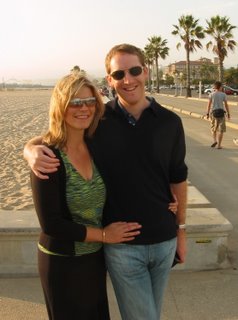Harvard
My mother had read somewhere that you needed a wide variety of extracurricular activities to make the cut. I already played the violin and loved writing for the school paper, so those were easy. A couple of weeks each summer at camp when I was 11 and 12 got me ready for the swim team. French classes plus a mini-internship in St. Etienne (the only useful application of a "Sister City" that I know of to date!) added international flavor.
By the time I applied for college, my knowledge of SAT averages and essay weighting in admissions decisions at various institutions of higher education was encyclopedic. To the credit of my parents and myself, I did not apply to every top-ranked school willy nilly. I sought out those schools that had outstanding English and Political Science programs, encouraged study abroad, and had low student:teacher ratios. Less nobly, I leaned toward schools that did not have rigorous math or science requirements.
I also looked for schools that had the ineffable quality of "feeling right." Could I see myself in these classes, learning from these professors, socializing with these students? Could I visualize myself walking these paths, living in these dorms, eating this food?
The obligatory "decision trip" came in March. Somewhat to my surprise, since I had never really intended to attend a women's college, Wellesley was my clear favorite of the schools to which I had been admitted. But note the qualifier - I was holding out hope for Harvard, where I had been waitlisted.
April was a difficult month. I agonized over whether to keep my name on the list, waiting to see if someone chose not to come to Cambridge after all. I wanted the halo, the sheen, the gold-plated rubber stamp of the Harvard diploma.
But deeper below the surface, I suspected there was something about Wellesley that was better for me. Whether it was that it is purely an undergraduate college, the fact that the captain of the swim team, editor of the newspaper, president of the student goverment and anyone else a first year student might look up to was a female role model, or simply that the campus is so beautiful they can charge locals membership fees to use its facilities as a "country club," I am still not sure. But my instincts told me it was the right decision. I took my name off Harvard's waiting list and sent in my deposit to Wellesley.
Living in New York with good health insurance and cancer, everyone assumes you are being treated at Sloan Kettering. Why wouldn't you? It's the best in the world, attracts leading doctors, participates in all the cutting edge trials, and has an international reputation.
After pulling a few corporate strings (again, welcome to New York!) I was able to get in easily for a second opinion immediately after my diagnosis. I had no issue with the doctors or nurses there. I can recognize the benefits the hospital offers. I can certainly understand why it is the right choice for so many people. And they do have lovely pinstriped hospital gowns.
But I don't think it's the right choice for me. Shallowly, it is a pain for me to get to - I know that complaining about convenience in a city the physical size of New York may sound ridiculous, especially to people who drive a couple of hours each way for their chemo treatments. But after living on the Upper West Side for a few years, the idea of traveling to York Avenue every other Friday sounds about as convenient as hopping a biweekly flight to Des Moines.
Much more importantly, it just doesn't feel as right. A woman I spoke to described part of what may be at the root of this emotion: "I know it sounds weird, but everyone you see at Sloan Kettering just seems so sick." My doctor told me that they provide excellent care and that I would certainly be in good hands there, but that the reason people seek out Sloan Kettering "is for the complicated, the severe, or the rare." So far, it appears that I fall into none of these categories.
I continue to get a few more opinions, but for the moment sticking with my original doctors at St. Luke's-Roosevelt and the path they have set me on feels like the right direction. Although I may be missing my chance to go to the Harvard of cancer hospitals, my gut has been right before - almost 16 years later, I still maintain that choosing Wellesley was the best decision I ever made. I can only hope I will be able to say the same thing about this decision, 6, 16 and 36 years from now.


